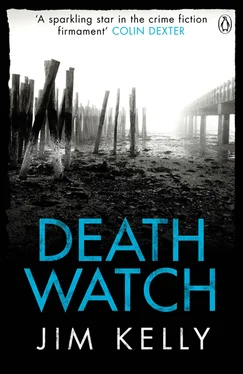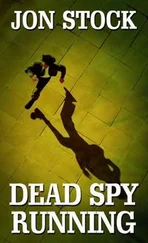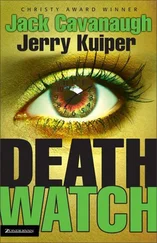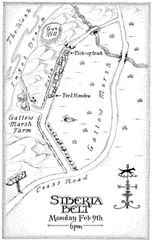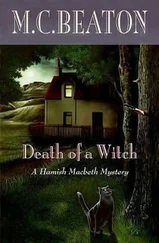Jim Kelly - Death Watch
Здесь есть возможность читать онлайн «Jim Kelly - Death Watch» весь текст электронной книги совершенно бесплатно (целиком полную версию без сокращений). В некоторых случаях можно слушать аудио, скачать через торрент в формате fb2 и присутствует краткое содержание. Жанр: Полицейский детектив, на английском языке. Описание произведения, (предисловие) а так же отзывы посетителей доступны на портале библиотеки ЛибКат.
- Название:Death Watch
- Автор:
- Жанр:
- Год:неизвестен
- ISBN:нет данных
- Рейтинг книги:3 / 5. Голосов: 1
-
Избранное:Добавить в избранное
- Отзывы:
-
Ваша оценка:
- 60
- 1
- 2
- 3
- 4
- 5
Death Watch: краткое содержание, описание и аннотация
Предлагаем к чтению аннотацию, описание, краткое содержание или предисловие (зависит от того, что написал сам автор книги «Death Watch»). Если вы не нашли необходимую информацию о книге — напишите в комментариях, мы постараемся отыскать её.
Death Watch — читать онлайн бесплатно полную книгу (весь текст) целиком
Ниже представлен текст книги, разбитый по страницам. Система сохранения места последней прочитанной страницы, позволяет с удобством читать онлайн бесплатно книгу «Death Watch», без необходимости каждый раз заново искать на чём Вы остановились. Поставьте закладку, и сможете в любой момент перейти на страницу, на которой закончили чтение.
Интервал:
Закладка:
He looked at the crew. One of them smiled, a fatal error, because you couldn’t fake a smile like that.
‘Stand up,’ said Shaw. They all stood, exchanging glances, and one or two now suppressing smiles. They thought they were safe, and that made Shaw certain they weren’t. Valentine came in with DC Lau.
‘Search them,’ he said. They did a two-hander, shuffling each one forward and then pushing them through to the galley. Nothing.
‘OK — strip off,’ said Shaw. They piled their clothes on the mess table and stood, their faces showing something else now — anger, betrayal, shame perhaps, so that the tension in the room was electric.
Six naked bodies. Six clean naked bodies. ‘Clean as whistles,’ said Valentine. All except for the white charity bracelets on each wrist. But they were clean, and that’s what Shaw had missed, until now.
‘The ship’s got two thousand tonnes of grain on it — the dust’s everywhere down by the hold, but everyone’s spotless,’ said Shaw. ‘The ship’s spotless.’ He ran a finger along the table top. ‘Why?’ he asked Samblant, stepping inside his personal space. ‘Why’s everything clean?’
‘We don’t touch the cargo,’ said Samblant. ‘It’s loaded,
Shaw thought about that, and the bloodwood dust in the captain’s shower room. He tried to call up a mental picture of the single sheet of A4 Twine had put together on the history of the Rosa — a ship’s CV. He couldn’t recall its original name, but he remembered its trade — running timber between Sao Paulo and Tilbury for five years in the early 1990s.
‘So why, and how, did the captain get covered in sawdust?’ he asked. He held up a finger, still smudged red. ‘Muirapiranga — bloodwood,’ he said. Samblant’s eyes faked confusion, but Shaw could see that the emotion he was trying to mask was fear. He didn’t get an answer to his question — but that didn’t matter. Because he knew now — not only why, and how, but where.
47
Shaw was in the dark — not the dark that is the absence of light, but a suffocating presence; on a vertical ladder, a hoop of steel at his back, both hands on a rung, his feet on two. The air was so hot it felt like a blanket, and he could imagine letting go and just sinking into it, hanging there in the velvet blackness. Then the hatch above opened and a light burnt down into the well like a laser beam. Dazzled, he closed his eyes, then looked down. Below him, perhaps thirty feet, was the deck of the hold. He was in a vertical tube, like an empty packet of Smarties. Number 3 hatch. He’d already been down number 1, number 2 and number 4. At the bottom of each he’d found a bulkhead door, which they couldn’t force open because there was 4,000 tonnes of grain on the other side.
He looked down again. This one had to be different.
Above him he heard boots rasping on metal rungs. DC Twine stopped ten feet above his head and looked down.
‘I got a certificate,’ he said. ‘Just in case.’ Over his shoulder he had an automatic carbine. Twine was one of a dozen officers at St James’s with firearms clearance, but he still required a magistrate to clear the issue of the gun.
‘OK,’ said Shaw. It didn’t make him feel any better because now he was the filling in the sandwich — between the gun and whatever lay below. He looked at Twine’s finger, curled round the trigger, which was in the locked
They climbed down, in silence, trying not to let their boots grate on the rusted metal. At the bottom Shaw jumped down the last three feet into the well of the hatch. There was something different. In the other hatches the base of the shaft had been empty, but here there was a metal cradle, like a seat, enclosed in steel crash bars and connected to a cable which ran up the side of the well to the square of light above. Shaw imagined it rising slowly, pulled by the capstan on the deck, a vertical bosun’s chair.
Twine stepped down beside him. They’d got a routine now, so Shaw radioed Valentine on the deck above, told him they were going in, then he put his shoulder to the metal door, spun the central lock, and Twine used his leg to try and force it open.
It opened, unlike the first three — the hinges oiled, an almost silent entry, the only sound a faint exhalation, like a breath.
They stepped out into a large space, a hold, but this one was empty, and had what must be a false deck above, so that it was only ten feet high. A single emergency light in a frosted box lit the whole scene, like a lamp under water seen from fathoms above. Above them, thought Shaw, would be grain. But beneath the grain was this hidden hold, empty except for a nest of HGV containers set against the port side. There was a door open, but the view was obscured by heavy plastic sheeting. Beyond it burnt lights, figures moving, casting kaleidoscopes of shadow.
Shaw took a breath and it caught in his throat. There Rosa had once carried across the Atlantic.
Twine released the lock on the carbine. He’d seen that out here in the hold they were not alone. A man sat on the floor outside the first container, his back to the bulwark wall which separated the holds, his head in his hands. He looked up now, and they saw it was Neil Judd, his hair and clothes soaked with sweat, both hands gripping his knees, which he pressed together. The moment he saw them his body tensed and Shaw thought he was going to stand. But he seemed to assess the moment, and his fragile body relaxed, deflating; and Shaw noticed a burning dog-end in his hand. Around him on the decking were spent matches, each one neatly broken in a V-shape. And Shaw thought that, with hindsight, that made more sense: that it would be Neil who would mimic his father, not Bryan, who hated him. Judd stretched out his legs so that they could see the soles of his shoes and Shaw noted the double Blakeys on each — little sonic transmitters, designed to rap on the floor, the pavement, steps; sending vital sounds back to Judd’s damaged ears, so that he could keep his balance.
The hold was a box of noise: a generator rumbled, and the electric cables which ran along both walls thrummed with power. The heat was counteracted by a set of air-conditioning units, the size of a pair of fridge-freezers, the outlet/inlet grilles vibrating. Shaw walked forward towards the hanging plastic door, which was marked with a diagonal red line.
‘I can’t do that,’ said Shaw; but he stopped, trying to think it through. If Andy Judd was on the table, under anaesthetic, then the donor had already lost his — or her — liver, or at least, part of it. Perhaps Neil Judd was right, perhaps it was too late.
‘Dad will die if they stop now.’
Shaw walked to the door and then turned to face Judd. The light was glaucous, as if they’d all been drowned, and were floating — suspended — while Jofranka Phillips finished her work.
‘Then I need to know all that you know,’ said Shaw. Twine stood with his back to the ship’s hull, looking at Neil Judd, the carbine held level. Beyond the plastic doors, even against the background noise of the generators and coolers, Shaw could just hear the occasional top-of-the-spectrum clash of surgical instruments, like cutlery in a busy restaurant.
‘I helped load the Rosa many times,’ said Neil Judd. ‘Once, we did it in record time, so they said to come aboard to the mess. We drank, ate their food, talked about our different lives. One of the Filipinos was into martial arts, and they had this gym set up on the pontoon deck. So I worked out — showed him what I could do. I knew they wanted something — something back. But I thought I’d wait and see what it was, ’cos I’m not stupid.’
He adjusted the hearing aid in his left ear. ‘And they had girls too…’ The smile disfigured his face with the effort of trying to look weary of such vices. ‘Then one night they said there was a man living in the church hostel
Читать дальшеИнтервал:
Закладка:
Похожие книги на «Death Watch»
Представляем Вашему вниманию похожие книги на «Death Watch» списком для выбора. Мы отобрали схожую по названию и смыслу литературу в надежде предоставить читателям больше вариантов отыскать новые, интересные, ещё непрочитанные произведения.
Обсуждение, отзывы о книге «Death Watch» и просто собственные мнения читателей. Оставьте ваши комментарии, напишите, что Вы думаете о произведении, его смысле или главных героях. Укажите что конкретно понравилось, а что нет, и почему Вы так считаете.
